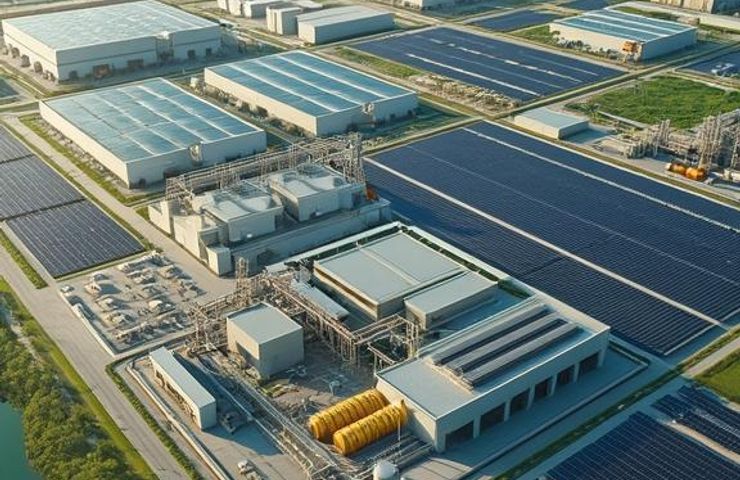
Reliance Accelerates Hydrogen Production with Jamnagar Clean Energy Gigafactories
September 1, 2025When Reliance Industries dropped its blockbuster plan at the 2025 AGM, it wasn’t just another corporate update—it was a signal flare. India’s gearing up to turbocharge hydrogen production and rewrite the playbook on sustainable energy. Under the fresh leadership of Anant Ambani, the aim is to fire up a battery gigafactory by 2026 and ramp green hydrogen output to three million tonnes a year by 2032. And they’re doing it all at Jamnagar in Gujarat, the same campus already famous for housing one of the world’s biggest refineries.
From Refineries to Renewables
It’s wild to think that the sprawling site where Dhirubhai Ambani kick-started Reliance back in 1966—dominating oil refining and petrochemicals—is now morphing into the Dhirubhai Ambani Giga Energy Complex. With seamless road and marine links to Kandla port, Jamnagar is perfectly poised to feed both homegrown demand and export markets. The burning question? How fast can this pivot propel India toward its National Green Hydrogen Mission of five million tonnes by 2030, all while accelerating industrial decarbonization?
Battery Gigafactory by 2026
First up on the clean-energy hit list is a state-of-the-art battery gigafactory. Reliance plans to crank it up within two years, churning out advanced lithium-ion cells at gigawatt-hour scale. These batteries will do more than store power—they’ll smooth out the ups and downs of solar and wind, shore up industrial storage, and juice up transport applications. Thanks to the massive scale at Jamnagar, the idea is to slash costs, secure domestic supply chains, and make a real dent in industrial decarbonization.
Scaling Green Hydrogen
The real headline, though, is the gargantuan push into green hydrogen. By 2032, they’re targeting three million tonnes a year, all made via water electrolysis powered by solar and wind. On-site electrolysers will split water into hydrogen and oxygen with zero carbon emissions. That hydrogen can feed steel mills and fertilizer plants or turn into derivatives like green ammonia and methanol, making it a linchpin for deeper decarbonization and building out robust hydrogen infrastructure.
An Integrated Clean Fuel Ecosystem
What really makes Reliance’s strategy stand out is full value-chain integration. Beyond batteries and electrolysers, they’ve mapped out:
- Solar module production to generate clean electricity
- Electrolyser factories churning out gear for massive hydrogen production
- Conversion plants for green ammonia and methanol
- Units dedicated to sustainable aviation fuel, targeting one of the toughest sectors to decarbonize
By weaving all these pieces together, Reliance aims to capture value at every step, cut inefficiencies, shorten supply chains, and pump out export-ready fuel derivatives.
Strategic Ripples
This isn’t just about hitting lofty numbers. We’re talking new jobs and high-tech manufacturing skills pouring into Gujarat, sparking fresh industrial clusters around Jamnagar. On the home front, reliable battery storage and a steady hydrogen supply will boost grid stability and trim fossil-fuel dependence. On the global stage, exporting green ammonia and methanol could swing trade balances in India’s favor, cementing its status as a go-to clean-energy supplier.
Of course, there are hurdles: keeping these new fuels cost-competitive against traditional options, scaling electrolysis technology, and building out comprehensive hydrogen infrastructure. But Reliance’s big move dovetails with a worldwide rush—governments and companies alike are racing to lock in green-hydrogen ground before the market standards snap into place.
The Road Ahead
Come 2026, we should see the first batteries rolling off the line. By 2032, millions of tonnes of green hydrogen—and its derivatives—could be flowing from Jamnagar. The true test will be whether this end-to-end approach can drive down costs, spark exports, and help India—and Reliance—lead the global clean-energy transition. One thing’s for sure: this pivot is worth watching.
About the Company: Founded in 1966 by Dhirubhai Ambani, Reliance Industries Ltd has grown into India’s most diversified conglomerate, spanning energy, petrochemicals, retail, and telecom. Under Anant Ambani, it’s now betting big on clean-energy manufacturing at its Jamnagar complex.



 With over 15 years of reporting hydrogen news, we are your premier source for the latest updates and insights in hydrogen and renewable energy.
With over 15 years of reporting hydrogen news, we are your premier source for the latest updates and insights in hydrogen and renewable energy.